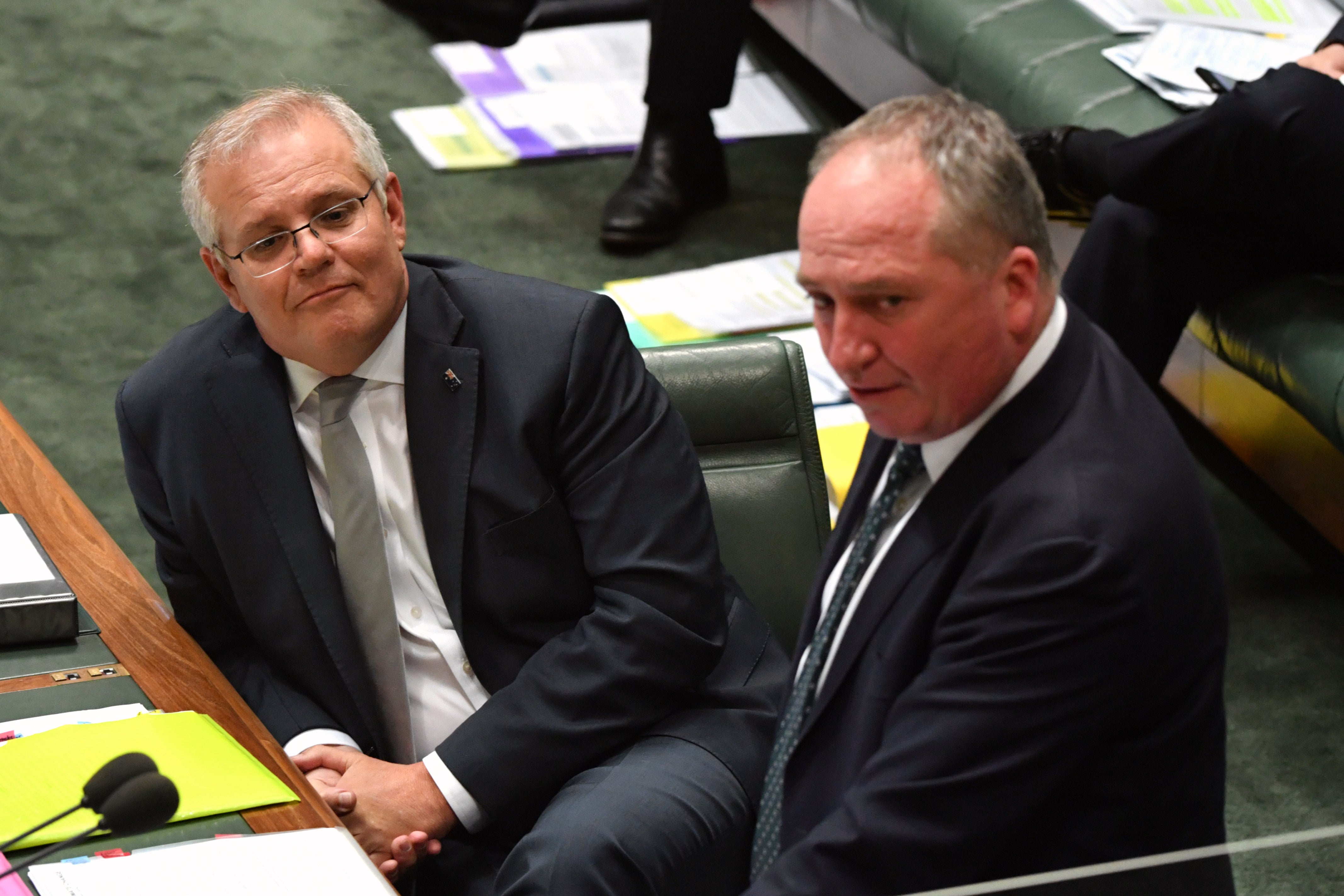Australia gives in-principle support for net zero by 2050
Australia’s Cabinet will consider conditions the government’s junior coalition partner has placed on committing the nation to a target of zero net carbon emissions by 2050

Your support helps us to tell the story
From reproductive rights to climate change to Big Tech, The Independent is on the ground when the story is developing. Whether it's investigating the financials of Elon Musk's pro-Trump PAC or producing our latest documentary, 'The A Word', which shines a light on the American women fighting for reproductive rights, we know how important it is to parse out the facts from the messaging.
At such a critical moment in US history, we need reporters on the ground. Your donation allows us to keep sending journalists to speak to both sides of the story.
The Independent is trusted by Americans across the entire political spectrum. And unlike many other quality news outlets, we choose not to lock Americans out of our reporting and analysis with paywalls. We believe quality journalism should be available to everyone, paid for by those who can afford it.
Your support makes all the difference.Australia’s Cabinet on Monday will consider conditions the government’s junior coalition partner has placed on committing the national to a target of zero net carbon emissions by 2050.
The Nationals party’s in-principle support for the target, agreed at a meeting on Sunday, is a breakthrough for Prime Minister Scott Morrison who wants to take a more ambitious plan to reduce Australia’s greenhouse gas emissions when he leaves on Thursday for a U.N. summit in Glasgow Scotland.
Nationals lawmakers were tight-lipped on the conditions the party had placed on their support.
Nationals leader Barnaby Joyce who is also deputy prime minister, declined to say whether the party had demanded that Resources Minister Keith Pitt be made the fifth Nationals’ Cabinet minister.
Joyce also declined to confirm or deny that he had told his colleagues he opposed net zero.
“We never would have had to go into the negotiation process if the Nationals were 100% happy with where the proposition was,” Joyce told Australian Broadcasting Corp. radio.
Nationals deputy leader David Littleproud said further details of the agreement would be made public by early Tuesday.
“We worked through this calmly and rationally as a party,” Littleproud said, adding that the Nationals' amendments to the Cabinet proposal would protect jobs in rural Australia.
Reducing emissions is a politically fraught issue in Australia, which is one of the world’s largest exporters of coal and liquified natural gas. The nation is also one of the world’s worst greenhouse gas emitters per capita because of its heavy reliance on coal-fired power.
The rural-based Nationals have traditionally represented farmers’ interests, but are increasingly now seen as advocates for fossil fuel industries.
Nationals Sen. Matt Canavan, who represents coal-rich Queensland state, said the deal was bad for the country.
“Net zero is going to end in tears,” Canavan told the Nine Network television.
“I don’t think this is the right approach for this country. It’s a fantasy to think we can remove all carbon emissions,” Canavan added.
Australia has not budged from its 2015 pledge at a Paris climate summit to reduce emissions by 26% to 28% below 2005 levels by 2030, despite many countries adopting far more ambitious targets.
The Glasgow summit, known as COP26, will assess progress since nations agreed in the Paris accord to limit warming to less than 2 degrees Celsius (3.6 degrees Fahrenheit). The meeting in Glasgow is widely seen as the last chance to hold global warming to 1.5 C (2.7 F) above pre-industrial levels.